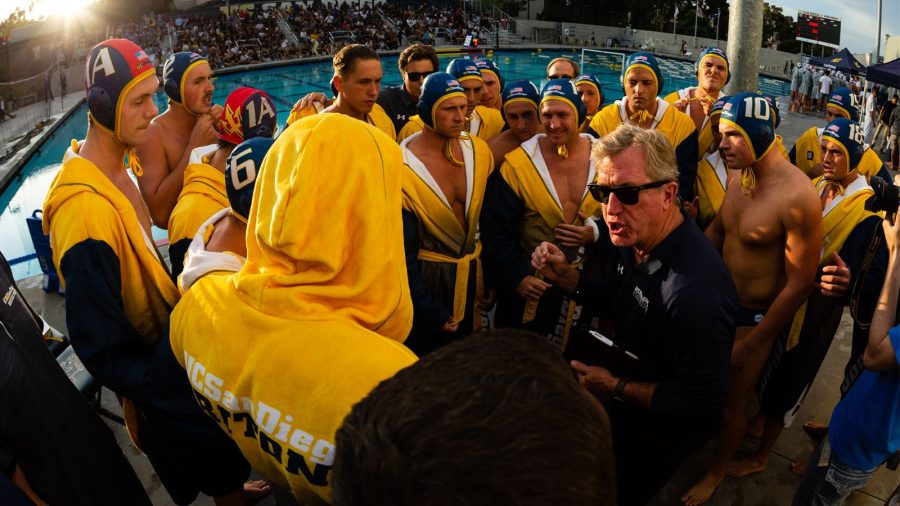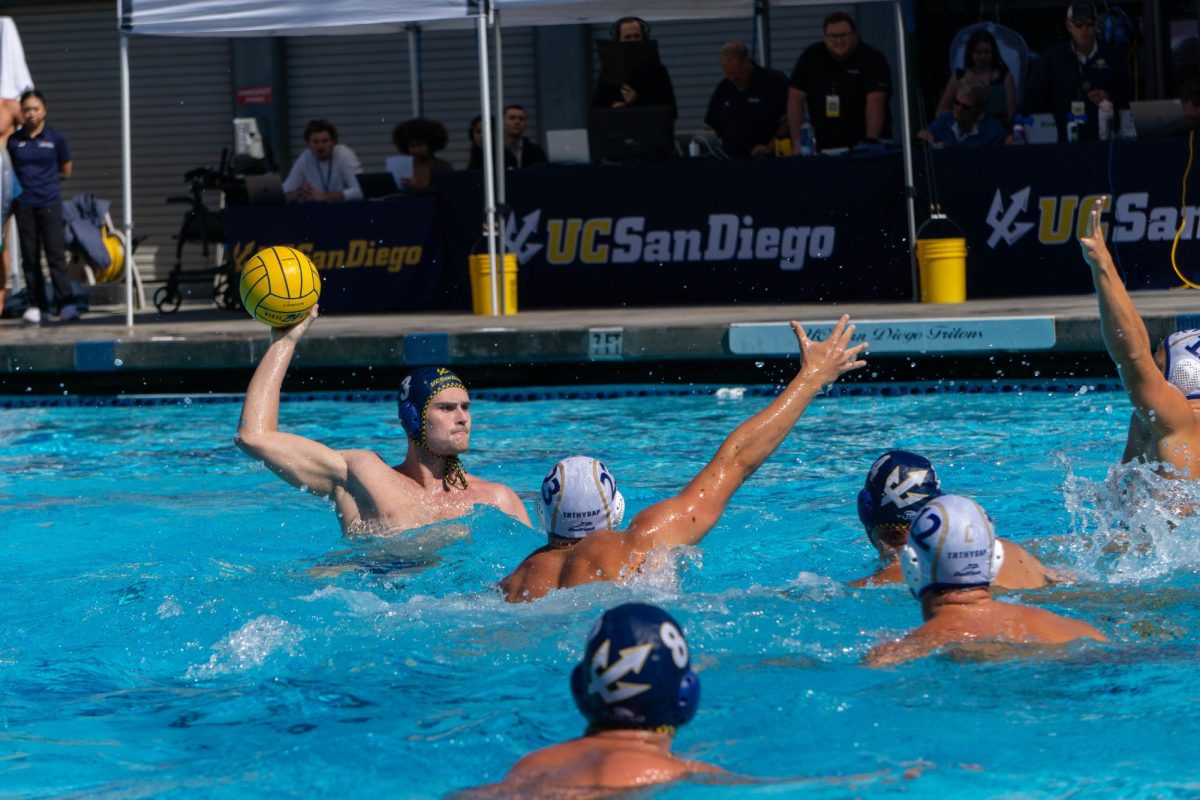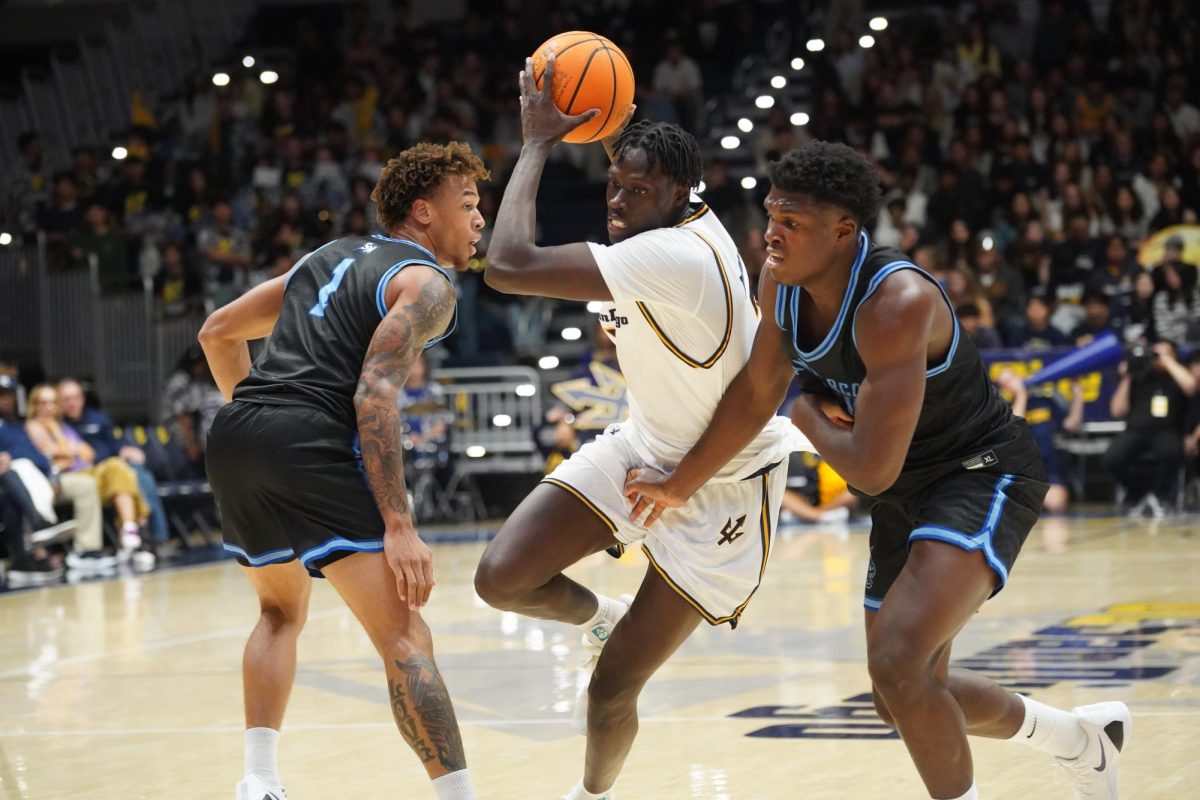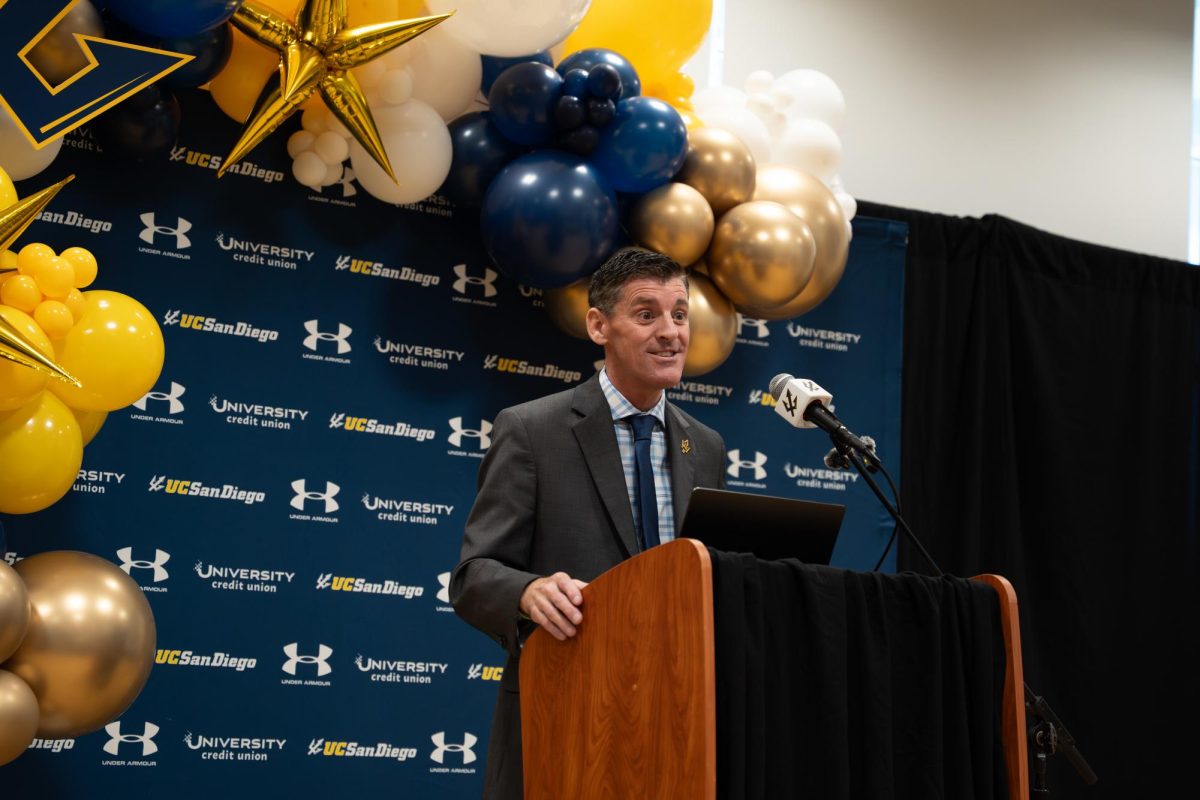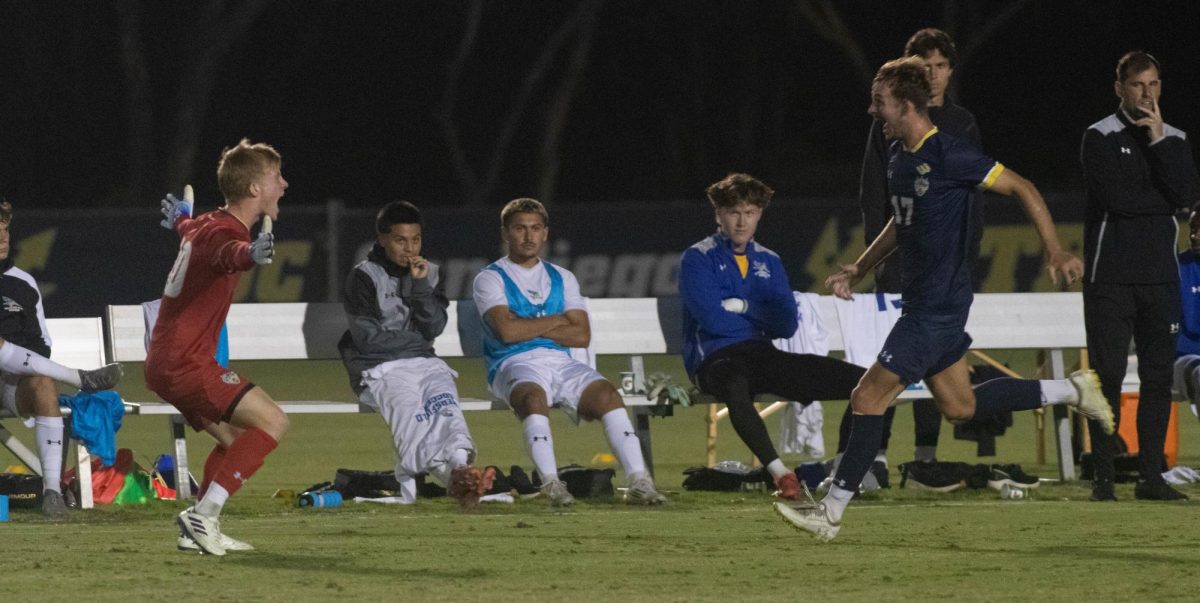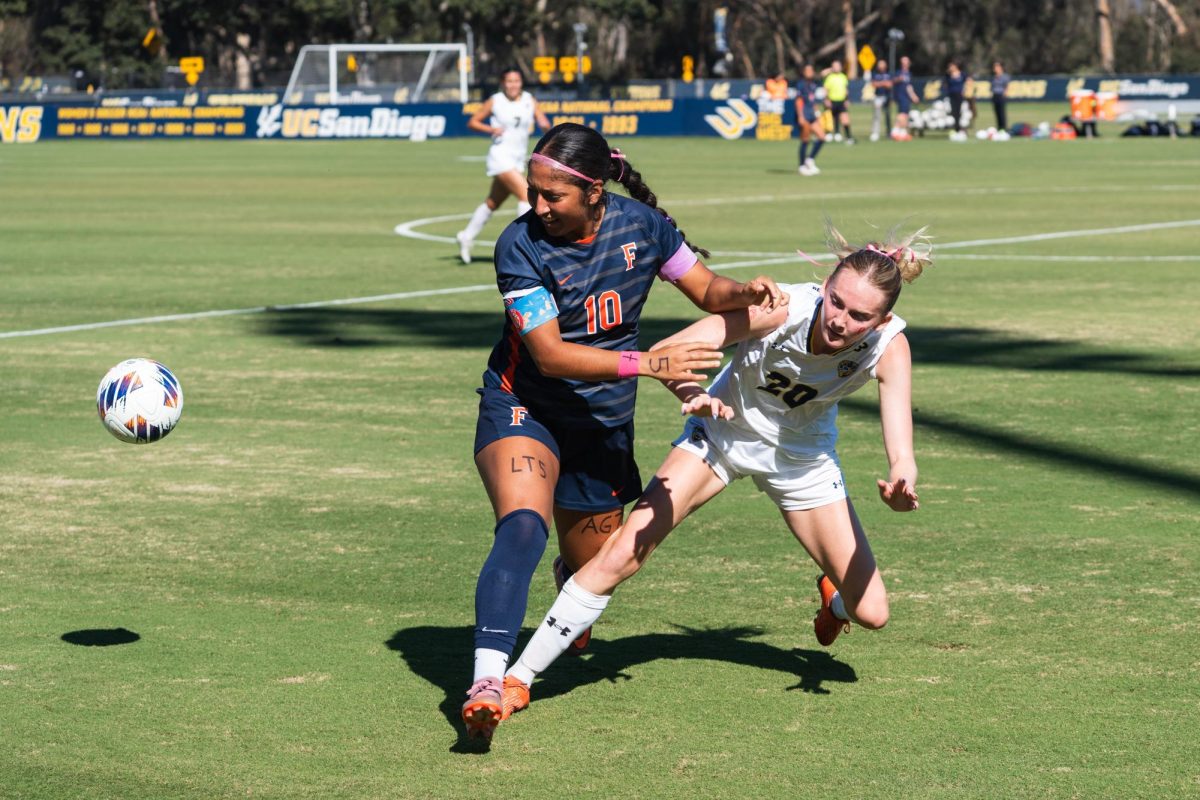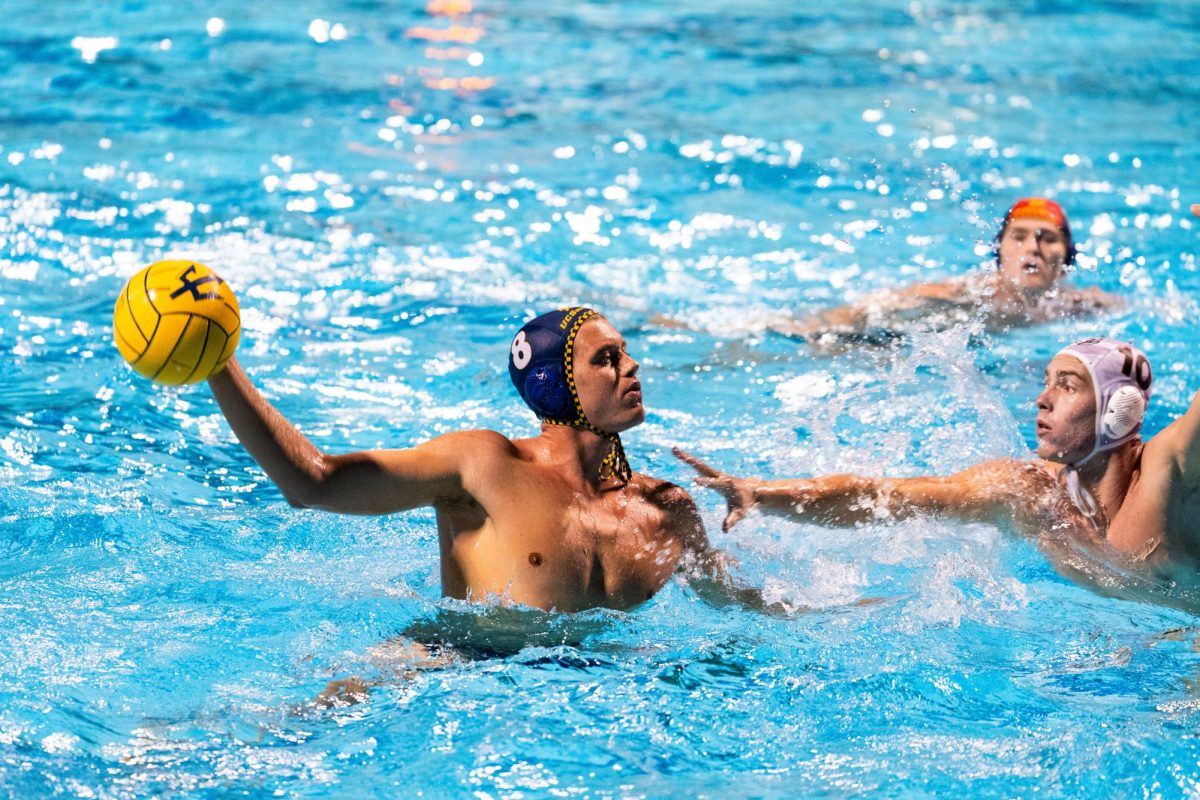Very few collegiate coaches in the country can claim a four-decade career at a single school. Even fewer of those coaches could say they’ve been around for the majority of their school’s existence.
But as he retires after his 42nd season at the helm of UC San Diego’s men’s water polo team, Denny Harper has accomplished just that, to go along with 697 wins, and an astonishing 17 National Coach of the Year awards from the Association of Collegiate Water Polo Coaches. In his time at UCSD, Harper has also spent nearly three decades in charge of aquatics, and served as the women’s water polo coach for 16 years, until 1999.
I met Coach Harper in his office at the Canyonview Aquatics Center for what I planned would be a cursory 15-minute interview about his career and retirement. We ended up speaking for about an hour and 45 minutes, about sports at UCSD, the school’s history, and other topics we were interested in, a fraction of which has made it into this article. But I think that tells you a lot about Harper right there.
―――――
First off: after 42 years, why retire now? “The time is just right. 42 years of coaching on this campus is enough, combined with the fact that I coached before this. I’ve been coaching this crazy sport for 50 years,” Harper said. “… I have five kids, I have a grandchild, I have another grandchild expected in September. I realize that that sounds a little stereotypical, but I love the fact that all my kids live in San Diego, and that sounds like a good time to me. Knock on wood, I have my health, and I’m super pleased that longtime associate head coach and former player Matt Ustaszewski is taking over, so that means that a lot of our longstanding traditions, values, and culture of the program will continue.”
“For over 40 years, I’ve never really done anything fun in the fall that didn’t have to do with water polo … Everything we do in this program 340 days a year is geared towards our campaign, so I’m looking forward to that — doing something in October, unheard of in the past.”
In the over four decades Harper has been affiliated with the university, he’s seen a lot of changes to a university that, when he began here, was younger than its students.
“I’ll first start by saying that I do have mixed emotions about the growth of everything. It’s exciting, it’s definitely needed, and UCSD has emerged as a major university… It’s not exactly sprawling, but I miss that old campus that was right around 8,000 students when I took over in 1980. It had a real charm to it of a quiet, sleepy beach school. There are times that I’ve missed that.”
I asked Coach Harper what sort of legacy he wishes to have left behind, and what sticks with him after coaching at UCSD for so long.
“One of the major, major reasons why I have ended up doing this for so long is getting connected to my players and their families. I was young and still somewhat of a knucklehead in the eighties, and I didn’t have some preordained plan to have a career in coaching … That four-year cycle just got a hold of me. Back then, there was no recruiting budget, no demands made of recruiting. You would talk to kids. And you get connected with your players and you want to see them through. And then, suddenly, I’m in my 16th season [coaching] the men and the women…”
“[This year,] I had to finally realize I had to break this somehow. It wasn’t easy. It was only a couple weeks ago that I told the team. There’s seven redshirt freshmen on the team that I can tell are going to be great water polo players, great people, all that. But I can’t continue my relationship the way I normally would with them, or I’d be one of those coaches who would have to be asked to leave, like ‘Jesus, Denny, you can barely walk.’”
“It’s kind of corny, but not many coaches get rich in coaching, especially in a minor sport. But let me tell you, I’m super rich in a lot of other ways. All the relationships I have with all my former players … I could never put a price tag on that. There’s so many things that were important to me that I was willing to sacrifice, perhaps, financially, in other work opportunities … All five of my kids, they were pretty much raised here at Canyonview. They were a part of closed-door halftime moments, and reflecting on all that makes me realize that that was a real benefit for my kids. The connection with the players, and how it translated into a long-term family experience has been fantastic. And [Ustaszewski], I told him just the other day, ‘If you have half as great of a coaching life as I’ve had here at UCSD, you’ll be stoked.’”
Coach Harper has a bevy of accolades, including 17 National Coach of the Year awards — including nine consecutive wins from 2011–2019 — and 19 conference Coach of the Year awards from the Western Water Polo Association. But Harper insists that individual awards are ultimately not what he values most.
“I’m appreciative, especially from coaching colleagues, but at the end of the day I’ve never put a whole lot of value in that. If anything, I factor that into one of the reasons it’s time for me to be done — there’s a lot of coaches out there that respect me and our program, and competing against them has been different for me the last few years because some of them are like friends. And,” Harper said, chuckling, “I’m not so sure that’s a good thing.”
I also jumped at the chance to ask Harper about one of the more intriguing bits of his biography — the time when, in 1989, he coached two squads from the men’s team in a Guinness World Record-setting 26-hour match of water polo at UCSD’s Natatorium next to Main Gym.
“Back then, when you did marathon records — I believe Guinness got rid of marathon records because people were literally dying trying to do them — for every hour that you did, you would get a ten-minute break. Well, that group I put together, which I specifically picked because I thought they were badasses, they could do three or four hours standing on their head. That was nothing, they’d done that under me.”
“We started at 1 o’clock, and around 5 or 6 — I had loosely known that there was a concert at the old Main Gym — it was Crowded House, an Australian band, they were a known thing in the late eighties. Well, most of the people in the band came in, poked their heads in. I have their signatures, because you also had to have a guestbook, so we had them sign the guestbook.”
“At some point in the concert, [the lead singer] talked about what was going on connected to the building, and consequently, when that thing let out around midnight, the Natatorium was packed with people. And it gave the guys an unbelievable energy surge… The crowd was there for maybe 30 minutes. And then they left. And then it was back to being just us, overnight, and now, ooh, 2 a.m., 3 a.m., 4 a.m. … Until the sun came up, it was pretty rough for those guys.”
After the record was set, there was a small gathering for the players and coaches. “The guys all came, but their hands were still gray and wrinkled. They looked like alien hands. All of them had green algae growing in their ears. After being here for 40 minutes they were pooped, so they left … I woke up around 12:30 or so, got up, took five or six steps, and both my hamstrings and calves cramped up like no tomorrow. I went down! Just totally cramped up from being up, standing, for over 40 hours, constantly moving.”
With decades of routine and experience in a job as rigorous as coaching, I asked coach Harper how he plans on filling his days now that he’s retired, and whether he has anything lined up.
“I’m busy by nature, I’m not just going to be a couch potato. I will still be connected to this program, I’ll be its biggest fan … I don’t know what I’m going to do, but I know it’s going to be good. I don’t have any anxiety over it.”
Near the end of our interview, I told Coach Harper that his retirement reminded me of that of Duke University men’s basketball coach Mike Krzyzewski, who has had a prolonged farewell tour this season soured by two upset losses to heated rival University of North Carolina, Chapel Hill, the latter in the Final Four. We’ve known all season that Krzyzewski would retire, so every game was a moment of closure, every tournament game could have been his last. But Harper announced his retirement in the offseason, so he didn’t have any such farewell tour, and I asked him if this was intentional.
“That Krzyzewski thing was a bit of an influence for me,” Harper said. “… He’s an awesome coach, however, he and I differed on that. I did not want that. While there obviously is going to be a group of guys who can say ‘We played for Denny his last season,’ I did not want ‘We’re the team that’s going to have to play for Denny.’ I would maintain that that was hard on the [Duke] players, I don’t think it was fair to the players … I’m glad the way that I did it.”
Harper says he’ll still be at Triton water polo games, and the men’s water polo program will continue to be a force under Ustaszewski. But the retirement of Coach Harper — among the most accomplished members of the entire UCSD community, and a link back to decades of campus history — represents the end of an era for Triton athletics as a whole.
Image courtesy of Derrick Tuskan / UC San Diego Athletics


